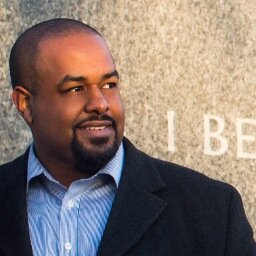Acclaimed psychological anthropologist Tanya M. Luhrmann is Watkins University Professor at Stanford University. Luhrmann is the author, most recently, of When God Talks Back, and is the recipient of the 2014 Grawemeyer Award in Religion. Patheos’ Executive Editor, David Charles, conducted the following interview.
Congratulations on winning the 2014 Grawemeyer religion award. If I’m not mistaken, it’s the second-largest award (after the Templeton Prize) for work done in the area of religion and spirituality. Grawemeyer isn’t yet a household name; how would you describe the award and the foundation behind it?
It is a lovely award. They describe it as an award to honor highly significant works in religion, understood as William James understood it: the feelings, acts and experiences of humans as they apprehend themselves to stand in relation to whatever they consider the divine. Charles Grawemeyer was an active Presbyterian and wanted to encourage work in a number of fields, including religion.
You’ve referred to yourself as being “bothered by Mind, whatever it is, and by the way our feelings weave around our thoughts.” You almost became a psychiatrist, like your father, but a class with the late Stanley Tambiah as an undergraduate at Harvard turned you toward anthropology. To date, you’ve pursued answers to “cognitive puzzles” in a series of widely divergent fieldwork environments — among London’s witches, India’s Parsis, among residents in psychiatry training, and among American evangelicals. What do you consider the overarching themes or arguments in your work? Put differently: What drives you, and what are you after?
I’m interested in how things become real to people—how people come to be confident that God is or isn’t there, or what suffering is and how to respond to it. I think that culture plays a role here, in directing people to pay attention in particular ways to their minds and bodies. I’m also interested in how that mechanism in judging what’s real gets broken. So I am interested in how people who experience something as real that clearly is not real manage the mismatch.
As someone who has “gone native,” for anthropological purposes, in a number of different religious settings — you once called yourself “no stranger to alternative religion” — how has your own spirituality been shaped or affected by your research and fieldwork experience?
I do not describe myself as a Christian but I would say that I have experienced God and I would say that I am on my own voyage of discovery.
One challenge of psychological anthropology is to find the right balance between cognition and culture as filters for how we comprehend experience and make religious worlds. If the mental operations you’ve described — such as “interpretive drift” or “metakinesis” — operate among multiple, diverse religious contexts, what explanatory role is left for culture?
Spiritual experience of the supernatural is shaped by psychological features (some people are just more likely to report unusual experiences than others because of their psychological orientation) but also by cultural features—what your society in effect asks you to pay attention to. My main project these days is to look at the experience of God in churches with similar theologies located in different parts of the world. If the experience of God were shaped only by psychological factors, you might think it would be similar in those different settings. And in some ways it is. But there are differences. For example, in this comparison, Americans experience God as more person-like, and more like a friend, than people in the churches I know in Chennai or Accra, where the human father is often a more authoritative figure. In Accra, the congregants loved experiencing God in their bodies, but in Chennai, congregants were often more skeptical of the bodily experience of God.
As a guest columnist for the New York Times, you’ve acted as a cultural translator between anthropology, religion, and the public. What have you learned from the experience? Did Leon Wieseltier’s critique surprise you?
I really enjoy writing in that way—you get to have different conversations. I was honored that Leon Wieseltier was agitated! It was also funny, because Wieseltier objected to my column on tongues, in which I explained that tongues might be an effect way to pray (it gives you the focus of meditation without the difficulty of meditation). He remarked that praying in Hebrew was moving but praying in tongues was—well, foolish, or something like that. But some Jews had written to me after the columns to say that they realized that in praying in a language they did not understand, they realized that they were praying in tongues…








